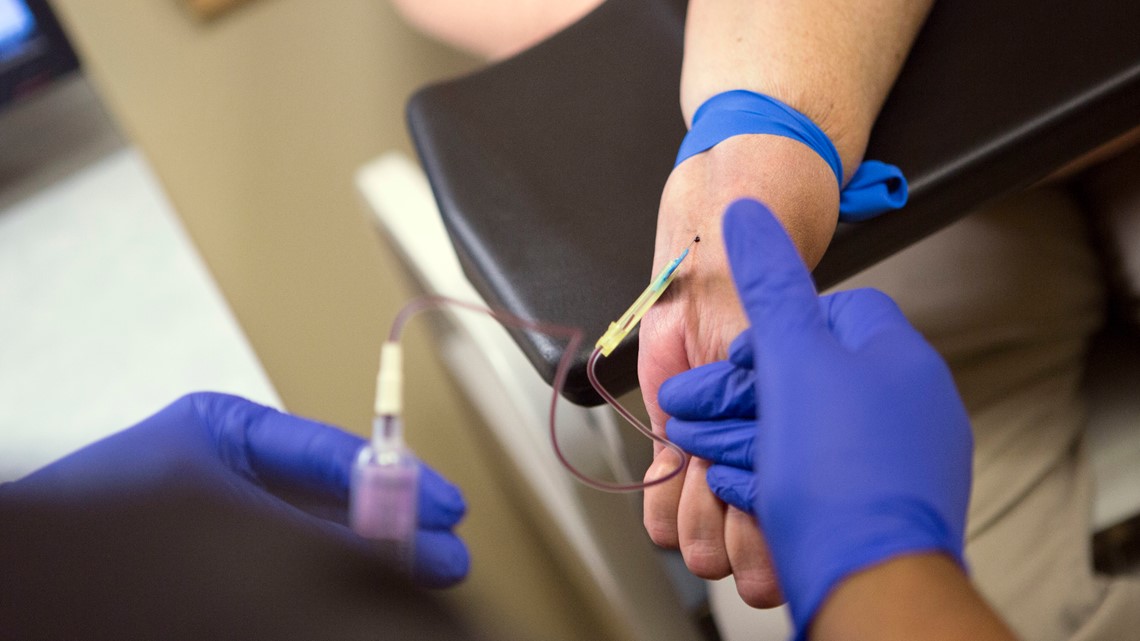T4K3.news
UKHSA urges hepatitis C testing for at-risk individuals
Health officials recommend testing for hepatitis C to avoid serious liver damage.

Health officials have urged the public to undergo testing for hepatitis C, which can have no symptoms.
UKHSA encourages hepatitis C testing to prevent serious liver damage
Health officials from the UK Health Security Agency (UKHSA) are urging individuals at high risk of hepatitis C to get tested for this life-threatening virus, which often presents no symptoms until significant damage has occurred. Hepatitis C primarily affects the liver and can lead to severe health complications, including liver cancer and liver failure. The virus spreads mainly through blood contact and is frequently transmitted through sharing needles among drug users. The UKHSA has communicated via social media various risk factors that may warrant testing, such as having had blood transfusions before 1996 and exposure to unsterile medical practices. The agency stresses that while hepatitis C is often asymptomatic, early testing and treatment can prevent severe health issues. Effective treatment is available through the NHS, consisting of a course of tablets lasting 8 to 12 weeks, free of charge. Furthermore, a recent study noted that lifestyle choices and vaccination could help prevent future liver cancer cases linked to hepatitis. The UKHSA data shows a significant decline in chronic hepatitis C cases, a positive sign for public health efforts in England.
Key Takeaways
"Hepatitis C often shows no signs until serious damage is done."
This statement emphasizes the silent nature of the virus, underscoring the importance of testing.
"Hepatitis C is curable and is treated using very effective tablets which you take for 8-12 weeks."
This quote highlights both the treatability of hepatitis C and the accessibility of the treatment through the NHS.
The UKHSA’s push for hepatitis C testing reflects a growing recognition of the importance of preventive healthcare. With a significant portion of those affected showing no symptoms, the campaign aims to reach high-risk groups and raise awareness around the disease. As public health agencies take more proactive stances, the societal implications are profound. Successfully curbing hepatitis C could lead to fewer liver cancer cases and overall better health outcomes. Nevertheless, the agency faces a challenge in encouraging people to seek testing without stigma. Building public trust in the healthcare system remains essential as elimination efforts continue.
Highlights
- Testing for hepatitis C can save lives and prevent serious health issues.
- Don't wait for symptoms to appear; get tested for hepatitis C today.
- Hepatitis C is treatable; early detection is crucial.
- Awareness can be the first step in preventing liver cancer.
Call for hepatitis C testing raises public health concerns
The emphasis on testing and prevention highlights potential gaps in public awareness and healthcare access, especially in at-risk populations.
As testing rates increase, the goal of eliminating hepatitis C may be within reach for public health officials.
Enjoyed this? Let your friends know!
Related News

NHS recommends Hepatitis C testing for at-risk individuals

South Carolina promotes hepatitis C testing on World Hepatitis Day

HHS Introduces $100M to Combat Hepatitis C

Creatine shows potential beyond athletics

Awareness raised about silent liver disease

Travelers warned of health risks after trips abroad

Research Links Hepatitis C Virus to Mental Disorders

UKHSA warns against ignoring TB symptoms
